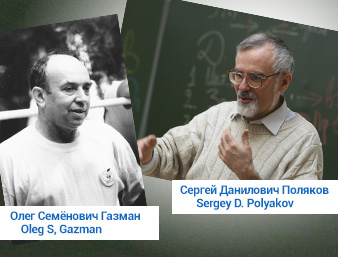
Образование как социокультурная инновация
Широко известен призыв «Образование должно готовить человека не к прошлому, а к будущему», то есть образование должно быть основным инновационным механизмом развития общества. Пожалуй, нет человека, который бы утверждал, что развитие (в том числе, и развитие самого образования) возможно без инноваций. Также известно и то, что инновации не проходят без сопротивления, при единодушной поддержке. Поэтому возникает вопрос: как проводить инновации, чтобы они давали максимальную пользу для развития и встречали минимальное сопротивление?
«Сами знаете, хотя что добро и надобно, а новое дело... то наши люди без принуждения не сделают», — говорил российский император Петр I в начале XVII века, обращаясь к своим министрам (Указ об уборке хлеба косами (11 мая 1721 г.). Цит. по: Нефедов С.А. С. 160). И 300 лет спустя президент России Б.Н. Ельцин в своем выступлении по телевидению повторил почти те же слова: «К несчастью, люди не понимают, что изменения ведут к лучшему, ... без инициативы, новых взглядов, свежих подходов, идей ... мощный прорыв невозможен» (Ельцин. Цит. по: Ормстон М., Шоу М. С. 68). Не только российская, но и международная история показывает, что нововведения часто проводятся насильственно, без учета интересов тех, кто их проводит, и даже тех, во имя кого они проводятся. «Люди без принуждения не примут и не будут выполнять меры, наилучшим образом рассчитанные для их собственного блага» – утверждал первый американский президент Джордж Вашингтон в XVII в. При этом неуспех объясняется ленью, глупостью и сопротивлением исполнителей.
Education as a sociocultural innovation
There is a well-known statement, «Education should prepare a person not for the past but for the future». In other words, education should serve as the main innovative engine, which sets in motion the development of the society. There is hardly anyone out there who would claim that the development (including the development of education) is possible without innovations. It is also known that an innovation does not pass without resistance, even with the unanimous support. So the question arises, How to innovate and to provide maximum benefits for any development with minimal resistance?
«You already know that although the good is needed, it is a new thing … Our people will not do it without coercion », said the Russian emperor Peter the Great in the early 17th century, addressing his ministers (Edict of harvesting with scythes (11 may, 1721.). Cit. by: S. A. Nefedov P. 160). And 300 years later Russian President Boris Yeltsin in his TV address repeated almost the same words: «Unfortunately, people do not realize that changes will lead to the better, … without initiative, new outlooks, fresh approaches and ideas … a powerful breakthrough is impossible» (Yeltsin. Cit. by: M. Ormston, M. Shaw, p. 68). Not only Russian, but also international history shows that innovations are often held forcibly, without taking into account the interests of those who hold them, and even those in the name of whom they are held. «People without coercion will not accept and will not carry out measures, best designed for their own good» (George Washington. Material from Wikisource. [Electronic resource]), claimed the first American President George Washington in the 17th century. In this situation, laziness, stupidity, and resistance of the performers explain any failure.




